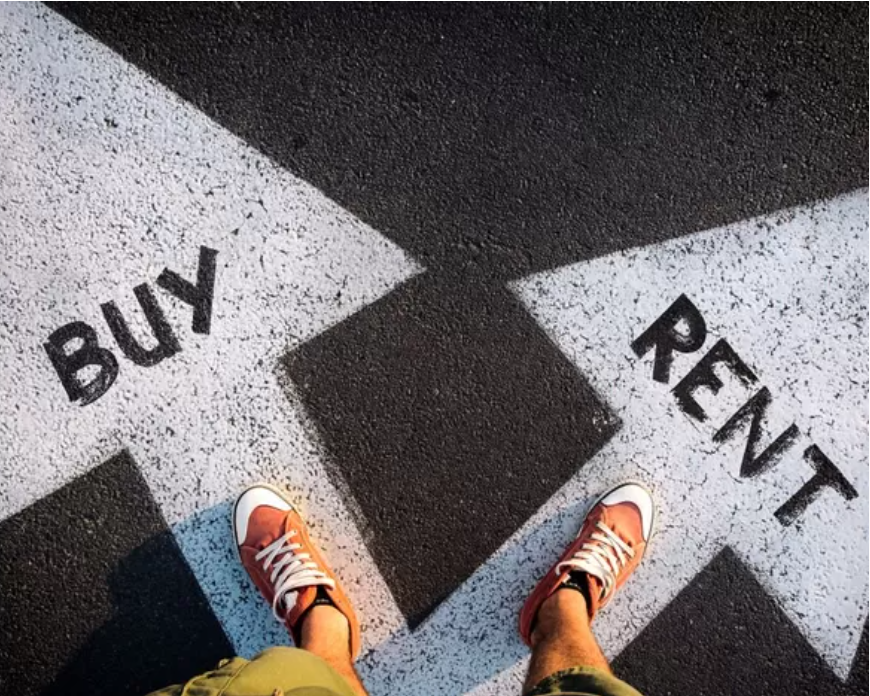Q:I’ve heard the housing market is ‘correcting’ and home prices are falling. However, mortgage rates and rents keep going up. So should I wait to buy until prices go down further and rent now instead?
Whether to rent or buy a home has long been on the mind of potential homebuyers. Soaring mortgage and rental rates are just making the calculations tougher. Way tougher.
Many are unsure which is better: to stomach the steep rent increases for now, waiting to buy until prices go down further, or to jump into the for-sale market before mortgage rates go up even further and they’re priced out of homeownership.
Rents shot up this year, rising 9.8% in August compared with a year earlier, according to the most recent Realtor.com® data. Nationally, the median rent was $1,771 a month in August. Over a year, that adds up to $21,252 that renters are forking over to their landlords. Those are large numbers to make peace with.
However, buying a home right now isn’t easy—even if the housing market is slowing down. It’s mired in a drawn-out process of sorting itself out as higher mortgage interest rates have slammed the brakes on record-high home prices and insane bidding wars. That’s led home prices to fall a little from their peak over the summer, giving many first-time buyers hope that prices will fall even further if they wait a bit longer. But rising mortgage rates have the potential to erase any savings.
In other words, there are no easy answers here. So let’s boil it down a bit further.
Should first-time buyers wait for prices to fall before pulling the trigger?
No one knows what will happen in the housing market as it continues to correct. Some real estate experts are predicting home prices will drop 10% to 20%—if we go into a recession. But no one wants that. And much of this will depend on which direction mortgage rates move.
Many buyers, especially first-timers, are learning they can no longer qualify for mortgages at these higher rates. Or they can’t afford a home they could have just a few months earlier, so they have to consider considerably cheaper properties or farther-out locations.
But mortgage interest rates have more than doubled in the past year. They’ve ratcheted up close to 7% for 30-year fixed-rate loans.
Factoring in the roughly 14% year-over-year price hike, someone buying a home today will pay about 74% more each month than they would have just a year ago.
So even if folks want to buy instead of rent, they might not be financially able to do so. Hence the dilemma.
Buying a home means you can lock in your monthly housing payment—to an extent
Still, with rents soaring, many tenants are still giving homeownership another look. If you purchase a home, you can mostly lock in your monthly housing payment over the long term. You’re not dependent on the whims of a landlord who can up your rent every year.
You may still face rising property taxes, but generally, that makes up a minimal amount of your home payment. So your housing payments are fairly fixed. Your costs, however, are not.
What they don’t tell you when you buy a house is that you’re now on the hook for anything in your home that goes wrong. And there is just so much that can go wrong.
Homeowners should budget 1% to 4% of the purchase price of the home for repairs and maintenance every year.
In my first week of homeownership, the boiler overflowed and flooded a small area in my basement. It cost more than $500 to fix. Then a bathtub faucet broke; the repair set us back an additional $150. And that’s just the minor stuff.
If your fridge breaks, you can’t call a property manager to come fix it. If a pipe bursts, you’re stuck calling a plumber and praying there’s no significant damage. Then there’s the expense of regular maintenance such as having the gutters and chimney cleaned and staying on top of the landscaping. And you need to factor in energy costs, which can be substantial. Those things add up big-time.
I’m not trying to scare first-time buyers away from homeownership. It’s a great way to lock in your housing payments so that you’re essentially paying today’s prices for a home for the next 10 or 20 years—or however long you live there.
I wish I could gaze into a crystal ball to see whether it’s better to rent or buy a home, if mortgage rates will stop rising, and if home prices will drop next year. Instead, I can advise you to be realistic about your finances when you run your numbers to see if it makes more sense for you to rent or buy.
Oct 5, 2022


 Facebook
Facebook
 X
X
 Pinterest
Pinterest
 Copy Link
Copy Link
